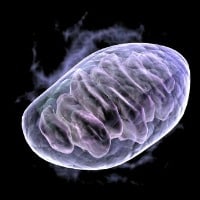Researchers in the United Kingdom may have found a way to destroy cancer cells with a combination of vitamin C and antibiotics. A University of Salford research team made use of a new experimental approach to knock out these stem cells that spur the expansion of fatal tumors. The research was recently published in the journal Oncotarget.
Research Details
The antibiotic used in the research is Doxycycline. The application of absorbic acid (also known as vitamin C), following the application of Doxycyline, unexpectedly proved quite effective in destroying cancer stem cells in lab conditions. Think of this two-pronged attack as similar to a boxer pummeling his opponent with two successive blows: a right-hand jab complemented by a left-hand uppercut.
The University of Salford research team states their method provides a new explanation for the prevention of cancer cell expansion to the point that they become resistant to treatment. Their work, conducted at Salford’s Biomedical Research Centre, will also help determine how combination therapies can be used best to overcome cancer cell resistance to drugs.
The study was designed by Michael Lisanti, a professor at the University of Salford. He commented that the study has helped his team understand how some cancer cells remain unaffected by chemotherapy and prove resistant to drugs. His team suspected the solution was rooted in the fact that specific cancer cells, referred to as “metabolically flexible”, are capable of switching their fuel source. When the application of the drug treatment decreases the availability of a specific nutrient, these flexible cells are capable of feeding themselves through an alternative energy source. The research team’s use of the new combination approach stops cancer cells from altering their diet and basically starves them. These cells are prevented from using any other types of bio-fuels that might be available.
How Metabolic Inflexibility was Achieved
Metabolic inflexibility was induced by adding Doxycycline in incrementally higher doses across a period of three months. The result left the cancer cells alive yet they were in a depleted state of existence, making them that much more susceptible to a lack of sustenance through a follow-up metabolic “punch” of sorts. The research team hindered tumor cell mitochondria with the restriction of cancer cells to glucose as a source of fuel. The team then removed the glucose and starved the cancer cells until they perished. In this instance, vitamin C functions as a means of inhibiting glycolysis that spurs energy production within mitochondria, which is considered the cell’s nucleus.
The Future of Cancer Combat?
The research showed that vitamin C is upwards of 10 times more effective at halting cancer cell growth than other pharmaceutical treatments like 2-DG. The research team reports that the combination of vitamin C with an antibiotic proves about 100 times more effective at combating cancer than 2-DG. The beauty of this treatment approach partially lies in the fact that vitamin C and Doxycycline are both non-toxic so there will be minimal, if any, side effects.
The research team also pinpointed eight additional drugs that can be used as a follow-up attack after the application of the antibiotic. These drugs include berberine, a completely natural product, along with an array of low-cost drugs that are non-toxic and FDA-approved. Professor Lisanti believes the results of his team’s work prove quite promising for clinical trials. This one-two combination will also likely be used as an add-on to traditional therapies in order to stop the recurrence of tumors, the progressions of the disease and the onset of secondary malignant growths.




